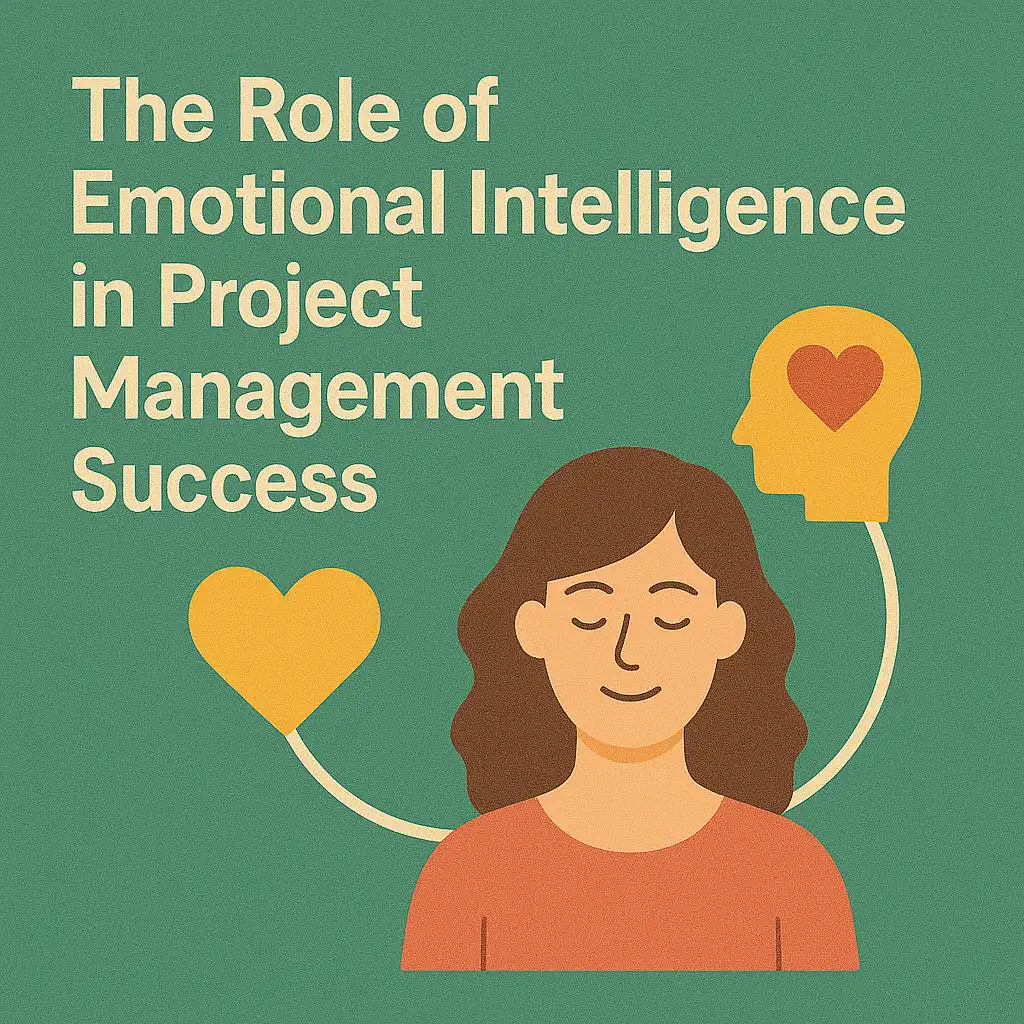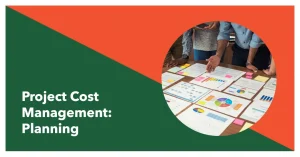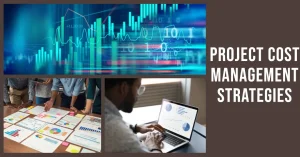Introduction to Emotional Intelligence in Project Management
Emotional Intelligence (EI) is a critical competency for project managers, especially for those at the entry level. It encompasses the ability to recognize, understand, and manage our own emotions, as well as the emotions of others. The key components of emotional intelligence include:
- Self-Awareness: This involves recognizing one’s own emotions and how they affect thoughts and behavior. For project managers, self-awareness allows for better decision-making and the ability to respond to challenges with clarity and composure.
- Self-Regulation: This refers to the ability to manage one’s emotions and impulses. In a project management context, self-regulation helps leaders maintain professionalism and control during stressful situations, fostering a stable work environment.
- Social Awareness: This component involves understanding the emotional dynamics of others. Project managers with high social awareness can empathize with team members, which is essential for building strong relationships and a collaborative team culture.
- Relationship Management: This is the ability to develop and maintain good relationships, communicate clearly, inspire and influence others, and manage conflict. Effective relationship management is vital for project managers as it directly impacts team dynamics and project success.
The importance of emotional intelligence in leadership cannot be overstated. Research indicates that projects led by emotionally intelligent managers tend to have higher success rates compared to those managed without a focus on EI [1]. This is largely due to the ability of emotionally intelligent leaders to foster a positive work atmosphere, which is crucial for team morale and productivity [3][14].
Moreover, emotional intelligence enhances project management outcomes by enabling leaders to navigate the complexities of human dynamics effectively. For instance, project managers who are adept at managing relationships can ease stakeholder tensions and motivate team members, leading to higher engagement and better project delivery [8][10].
Why Emotional Intelligence Matters for New Project Managers
Emotional Intelligence (EI) is increasingly recognized as a crucial skill for project managers, especially those at the entry level. As new project managers embark on their careers, understanding and leveraging EI can significantly enhance their effectiveness in leading teams and managing projects. Here are some specific benefits of EI for entry-level project managers:
- Effective Communication and Conflict Resolution: Emotional intelligence plays a vital role in facilitating clear and effective communication. New project managers equipped with high EI can better understand and articulate their own emotions, as well as empathize with the feelings of their team members. This ability allows them to navigate complex conversations and resolve conflicts constructively. By actively listening to team concerns and responding empathetically, they can de-escalate tensions and foster a collaborative environment, which is essential for project success [1][13].
- Building Trust and Rapport: Trust is the foundation of any successful team, and emotional intelligence is key to establishing it. New project managers who demonstrate EI can create a supportive atmosphere where team members feel valued and understood. This involves recognizing individual differences in communication styles and emotional responses, which helps in tailoring interactions to build stronger relationships. As trust grows, so does team cohesion, leading to improved collaboration and productivity [6][11].
- Better Stakeholder Engagement and Satisfaction: Engaging stakeholders effectively is critical for project success, and emotional intelligence enhances this capability. Project managers with high EI can better understand the needs and concerns of stakeholders, allowing them to communicate more effectively and address issues proactively. This understanding fosters stronger relationships with stakeholders, leading to increased satisfaction and support for the project. By managing emotions—both their own and those of others—entry-level project managers can navigate stakeholder dynamics more adeptly, ensuring that all parties feel heard and valued [10][15].
Key Emotional Intelligence Skills for Aspiring Leaders
Emotional intelligence (EI) plays a crucial role in the success of project management, particularly for new project managers and aspiring leaders. Developing specific EI skills can significantly enhance leadership effectiveness and improve team dynamics. Here are the key emotional intelligence skills that new project managers should focus on:
- Self-Awareness: This foundational skill involves recognizing and understanding one’s own emotions, strengths, and weaknesses. Self-aware project managers can make informed decisions and avoid reactive behaviors, which fosters trust and authenticity within their teams. By engaging in regular self-reflection, such as journaling or seeking feedback, aspiring leaders can enhance their self-awareness and better navigate the complexities of project management [10][12].
- Self-Regulation: The ability to manage one’s emotions and stress levels is vital, especially in high-pressure situations typical in project management. Leaders who practice self-regulation can maintain composure, make rational decisions, and model positive behavior for their teams. Techniques such as mindfulness and stress management strategies can help project managers develop this skill, enabling them to respond thoughtfully rather than react impulsively [4][12].
- Empathy: Understanding and addressing the feelings and concerns of team members is essential for fostering a supportive work environment. Empathetic project managers can build stronger relationships, resolve conflicts more effectively, and motivate their teams. By actively listening and showing genuine concern for team members’ well-being, aspiring leaders can create a culture of trust and collaboration [3][13].
- Social Skills: Building relationships and fostering teamwork are critical components of effective leadership. Strong social skills enable project managers to communicate clearly, inspire others, and facilitate collaboration among team members. By engaging in team-building activities and encouraging open communication, new project managers can enhance their social skills and create a cohesive team dynamic [5][15].
Practical Strategies to Enhance Emotional Intelligence
Emotional intelligence (EI) is a crucial component for success in project management, particularly for new project managers and aspiring leaders. Developing EI can significantly enhance leadership capabilities and improve team dynamics. Here are some actionable strategies to help you cultivate your emotional intelligence:
- Engage in Self-Reflection and Seek Feedback from Peers: Regular self-reflection allows you to identify and understand your emotions, which is the first step in enhancing self-awareness. Consider journaling your thoughts and feelings after meetings or project milestones to gain insights into your emotional responses. Additionally, seeking constructive feedback from peers can provide valuable perspectives on how your emotions and behaviors impact the team, helping you to adjust and improve your interactions [3][12].
- Practice Active Listening Techniques: Effective communication is vital in project management, and active listening is a key skill that enhances this. Focus on truly understanding what your team members are saying by maintaining eye contact, nodding, and summarizing their points to confirm your understanding. This not only fosters a supportive environment but also encourages open dialogue, making team members feel valued and heard [10][14].
- Participate in Team-Building Exercises: Engaging in team-building activities can strengthen relationships among team members and improve overall team cohesion. These exercises create opportunities for team members to interact in a non-work context, which can enhance trust and collaboration. Consider organizing workshops or informal gatherings that encourage team bonding and communication [5][14].
- Utilize Role-Playing Scenarios: Role-playing can be an effective method for developing empathy and conflict resolution skills. By stepping into the shoes of others, you can better understand their perspectives and emotional responses. This practice not only enhances your ability to empathize with team members but also equips you with the skills to navigate conflicts more effectively. Create scenarios that reflect common challenges in project management and practice responding to them in a supportive and constructive manner [4][11].
By implementing these strategies, new project managers can significantly enhance their emotional intelligence, leading to improved leadership effectiveness and stronger team dynamics. Developing these soft skills is essential for navigating the complexities of project management and fostering a positive work environment.
The Impact of Emotional Intelligence on Team Dynamics
Emotional Intelligence (EI) is increasingly recognized as a crucial factor in the success of project management, particularly for new project managers and aspiring leaders. Understanding and leveraging EI can significantly enhance team dynamics and overall project performance. Here are some key points that illustrate the impact of EI on team dynamics:
- Correlation Between High EI and Team Morale: High emotional intelligence in project managers is directly linked to improved team morale. Managers who exhibit strong EI are better equipped to inspire and motivate their teams, creating an environment where team members feel valued and understood. This positive atmosphere fosters higher engagement levels, leading to increased productivity and job satisfaction among team members [2][4].
- Reducing Misunderstandings and Fostering Positive Culture: Emotional intelligence plays a vital role in minimizing misunderstandings within teams. By being attuned to the emotions of others, project managers can navigate conflicts more effectively and facilitate open communication. This ability to empathize and connect with team members helps in building a culture of trust and collaboration, which is essential for a cohesive team dynamic [8][11]. When team members feel safe to express their thoughts and emotions, it leads to a more harmonious working environment.
- Case Studies of Successful Projects: Numerous successful projects have been led by managers who exemplify high emotional intelligence. For instance, a project manager who actively listens to team concerns and provides constructive feedback can significantly enhance team collaboration. In one case, a project team that faced significant challenges was able to turn around their performance under a leader who prioritized emotional intelligence. This manager implemented regular check-ins to gauge team sentiment and adjusted project strategies based on team feedback, resulting in a successful project completion ahead of schedule [3][15]. Such examples underscore the importance of EI in achieving project goals and maintaining team cohesion.
Measuring Emotional Intelligence in Project Management
Emotional Intelligence (EI) is increasingly recognized as a vital component of effective project management, particularly for new project managers and aspiring leaders. Understanding and measuring EI can significantly enhance leadership capabilities and improve team dynamics. Here are some key points to consider when assessing emotional intelligence in project management.
Assessment Tools and Frameworks
Several established tools and frameworks can help project managers and team members measure their emotional intelligence:
- EQ-i (Emotional Quotient Inventory): This self-report tool assesses various aspects of emotional intelligence, including self-perception, self-expression, interpersonal skills, decision-making, and stress management. It provides a comprehensive overview of an individual’s emotional strengths and areas for improvement [3][5].
- MSCEIT (Mayer-Salovey-Caruso Emotional Intelligence Test): Unlike self-report measures, the MSCEIT is an ability-based test that evaluates how well individuals can perceive, use, understand, and manage emotions. This objective approach can provide valuable insights into a person’s emotional capabilities [5][10].
These tools not only help in identifying current EI levels but also serve as a baseline for future development.
Importance of Continuous Improvement and Self-Assessment
Continuous improvement is essential in project management, and emotional intelligence is no exception. Regular self-assessment allows project managers to reflect on their emotional responses and interactions with team members. This practice can lead to:
- Enhanced Self-Awareness: Understanding one’s emotional triggers and responses can help project managers navigate challenging situations more effectively [10][12].
- Improved Team Dynamics: By recognizing and addressing their emotional strengths and weaknesses, project managers can foster a more collaborative and supportive team environment [12][14].
Encouraging a culture of feedback within the team can also facilitate ongoing development of emotional intelligence, as team members can share insights and observations about each other’s emotional interactions.
Seeking Mentorship and Coaching
Mentorship and coaching play a crucial role in enhancing emotional intelligence. New project managers can benefit from the guidance of experienced leaders who can provide:
- Personalized Feedback: Mentors can offer tailored advice based on their observations of a mentee’s emotional interactions and leadership style [14][15].
- Skill Development: Coaching can focus on specific EI skills, such as conflict resolution, empathy, and effective communication, which are essential for successful project management [12][13].
By actively seeking mentorship and engaging in coaching, aspiring leaders can accelerate their emotional intelligence development, leading to improved project outcomes and stronger team relationships.
Conclusion: Emotional Intelligence as a Critical Component of Project Management Success
Emotional intelligence (EI) emerges as a pivotal factor that significantly influences both leadership effectiveness and team dynamics. Throughout this blog, we have explored various aspects of EI and its profound impact on project success. Here are the key takeaways:
- Enhanced Communication: Project managers with high emotional intelligence excel in communication, allowing them to convey their vision clearly, receive feedback constructively, and address team concerns effectively. This clarity fosters a collaborative environment essential for project success [2][10].
- Conflict Resolution: Emotionally intelligent project managers are adept at managing their own emotions and understanding the emotions of others. This skill enables them to navigate conflicts with empathy and tact, leading to more effective resolutions and a harmonious team atmosphere [7][10].
- Team Dynamics: EI plays a crucial role in fostering a positive work environment. Project managers who prioritize emotional intelligence can inspire, guide, and support their teams, which enhances overall morale and productivity [6][8].
- Long-term Success: The integration of emotional intelligence into project management practices not only contributes to immediate project outcomes but also supports the long-term career development of project managers. Those who cultivate their EI are better equipped to handle the complexities of project leadership and are more likely to achieve sustained success in their careers [12][15].
For new project managers and aspiring leaders, prioritizing emotional intelligence in their professional development is essential. By actively working on their EI skills, they can improve their leadership capabilities, enhance team collaboration, and ultimately drive project success.
The long-term benefits of integrating emotional intelligence into project management practices are substantial. Not only does it lead to more successful projects, but it also fosters a resilient and adaptable leadership style that can navigate the challenges of the ever-evolving project landscape. Embracing emotional intelligence is not just an option; it is a critical component for anyone looking to thrive in the field of project management.
Find out more about Shaun Stoltz https://www.shaunstoltz.com/about/.
This post was written by an AI and reviewed/edited by a human.



